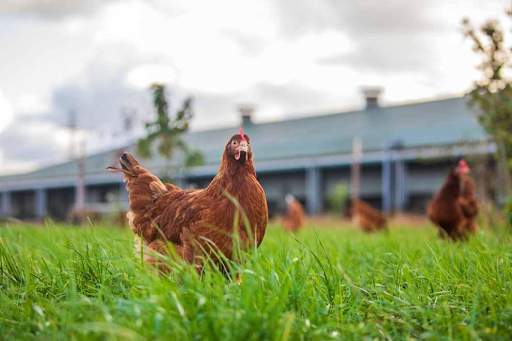New plans from the UK Government to safeguard animal welfare standards whilst maximising trade opportunities have been welcomed by the RSPCA.
Ministers today (26 June) released the UK’s Trade Strategy, which aims to reset the UK’s approach to international trade following its withdrawal from the European Union – and the animal welfare charity has applauded a specific commitment to not lower food standards, and to use trade measures including import bans to uphold welfare.
The RSPCA has long warned against trade strategy opening the UK food market to lower welfare produce – like eggs from battery caged hens, pork from sow stall systems, chlorine-washed chicken or hormone-treated beef.
Such trades could allow food to be imported which is illegal under UK law, and risk undercutting the British farmers.
But RSPCA trade experts say the UK’s refreshed strategy contains “great news” for animals, and is a clear sign that the UK Government “means business” in meeting a pledge to safeguard animal welfare during any trade talks.
David Bowles, the RSPCA’s Head of Public Affairs, said: “The new UK Trade Strategy is great news for animals.
“The highest animal welfare should be at the heart of a world class agri-food and drinks sector for the UK.
“Including a clear commitment to safeguard animal welfare standards, suggests the UK Government means business when it pledges not to row back our higher animal welfare standards.”
The UK Government has promised to always consider whether overseas produce has an “unfair advantage” in trade – and to consider the impacts, with specific reference made to controversial methods of production like sow stalls for pregnant pigs and battery cages for hens.
In the strategy, Ministers say they are “prepared to use the full range of powers at … (their) disposal” to protect sensitive sectors – including maintaining UK levels of statutory protection concerning animal health, welfare and the environment.
David added: “While free trade is so important, there’s always a risk that without clear safeguards, the UK could open the flood gates to animal products reared to standards which are far lower than we are used to at home.
“But these latest commitments from the UK Government should really protect our consumers from products like eggs from battery caged hens, pork from sow stall systems, chlorine-washed chicken or hormone-treated beef; and support farmers adhering to better welfare standards for livestock at home.”
Meanwhile, the RSPCA hopes the UK Government will “build on the positivity” of its new trade plans – by progressing the introduction of mandatory food labelling for UK and imported products.
Last month, the UK Government released the outcome of a consultation which found 99% of individuals and 69% of organisations supported method of production labelling – which could see clear, transparent information added to the packets of animal products.
David added: “Following this commitment to domestic agriculture and higher animal welfare standards at home, it’s now vital the UK Government builds on the positivity and gives people more information than ever before about where their food comes from.
“We’re expecting this administration to release a new Food Strategy in the coming weeks, and mandatory method of production labelling would help consumers make informed choices about what they eat, and understand more about where our food comes from, including the welfare of animals reared for food.”




